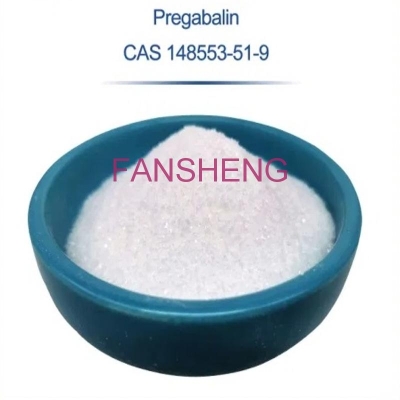-
Categories
-
Pharmaceutical Intermediates
-
Active Pharmaceutical Ingredients
-
Food Additives
- Industrial Coatings
- Agrochemicals
- Dyes and Pigments
- Surfactant
- Flavors and Fragrances
- Chemical Reagents
- Catalyst and Auxiliary
- Natural Products
- Inorganic Chemistry
-
Organic Chemistry
-
Biochemical Engineering
- Analytical Chemistry
- Cosmetic Ingredient
-
Pharmaceutical Intermediates
Promotion
ECHEMI Mall
Wholesale
Weekly Price
Exhibition
News
-
Trade Service
2021331/bioon.
com" target="_blank">bioon.
com" target="_blank">bioon.
com" target="_blank">/---CRISPR/Cas9《》2013,。202010,-Emmanuelle CharpentierJennifer A.
DoudnaCRISPR-Cas92020。
com" target="_blank">bioon.
com" target="_blank">bioon.
com" target="_blank">
CRISPR,CasCRISPR。CRISPR/Casbioon.
com/course_video/xi-jun-fei-bian-ma-RNA-de-xi-tong-fa604804.
html">,bioon.
com/course_video/xi-jun-fei-bian-ma-RNA-de-xi-tong-fa604804.
html">。
com/course_video/xi-jun-fei-bian-ma-RNA-de-xi-tong-fa604804.
html">bioon.
com/course_video/xi-jun-fei-bian-ma-RNA-de-xi-tong-fa604804.
html">
Thomas Splettstoesser (Wikipedia, CC BY-SA 4.
0)。
What are the major CRISPR/Cas research or findings in the coming March? The editor combed the CRISPR/Cas research news reported this month for everyone to read.
1.
Nat Commun: Scientists have developed new gene editing tools to correct mutations that induce human genetic diseases
doi:10.
1038/s41467-021-21559-9 Recently, a research report published in the international journal Nature Communications, from Singapore Scientists from A*STAR Research Institute and other institutions have developed a CRISPR-based gene editor called CG Base Editor (CGBE, C-to-G Base Editor) through research, which may help correct induced human inheritance.
Mutations in sexual diseases.
1.
Nat Commun: Scientists have developed new gene editing tools to correct mutations that induce human genetic diseases
2.
bioon.
com/article/6785638.
html" target="_blank">Nature Sub-Journal: CRISPR technology reveals the mechanism of cancer spread
2.
bioon.
com/article/6785638.
html" target="_blank">Sub-Journal of Nature: CRISPR technology reveals the mechanism of cancer spread
3.
eLife: New genome-wide CRISPR screening technology may discover key pathways related to cancer
4.
Nat Commun: New methods to promote the development of antibody drugs
4.
Nat Commun: New methods to promote the development of antibody drugs
5.
bioon.
6.
Science Advances: Microneedle-assisted genome editing can synergistically treat inflammatory skin diseases!
7.
medsci.
cn/article/show_article.
do?id=5913208298df" target="_blank">Science: CRISPR gene silencing mechanism opens up new treatments for chronic pain
doi:10.
1126/science.
abi4517 medsci.
cn/article/show_article.
do?id=5913208298df" target="_blank">Science: CRISPR gene silencing mechanism opens up new treatments for chronic pain
Diagram of the overall strategy through the intrathecal route of administration (ROA).
8.
Molecular Therapy: 3 years of treatment once! Gene editing shows long-term cholesterol-lowering ability
doi: 10.
1016/j.
ymthe.
2021.
02.
020 Recently, a new study published in the journal Molecular therapy by a team of gene therapy experts from the University of Pennsylvania, realized gene editing by editing the PCKS9 gene Two key goals of treatment: safety and durability.
The study reported for the first time that one-time gene editing can significantly reduce the levels of PCSK9 protein and LDL-C in animals for up to 3 years! The researchers used the ARCUS genome editing technology platform developed by Precision BioSciences.
An attempt was made to determine that the above-mentioned edited cynon targeting the PCSK9 gene was delivered to the liver of non-human primates (NHP) by adeno-associated virus (AAV), followed by monitoring for up to 3 years.
The results showed that the treated animals showed a continuous decrease in circulating PCSK9 and LDL-c, in which the PCSK9 protein level continued to decrease by 85%, and the LDL-C level continued to decrease by 56%.
At the same time, the gene editing of PCSK9 locus was very stable, the off-target rate was low, and no obvious adverse changes were found in liver tissue pathology.
In addition, during 3 years, liver cells have gone through many iterations.
These results mean that the genome changes made by gene editing are passed on to the new generation of liver cells, supporting the permanent reduction of PCSK9 and LDL-C levels.
.
These studies have shown that targeted gene disruption in the body exerts a long-lasting therapeutic effect without significant adverse reactions.
Therefore, the results support clinical transformation.
(Bioon.
com)
Molecular Therapy: 3 years of treatment once! Gene editing shows long-term cholesterol reduction ability
doi: 10.
1016/j.
ymthe.
2021.
02.
020 Molecular Therapy: 3 years of treatment! Gene editing shows long-term cholesterol-lowering ability







